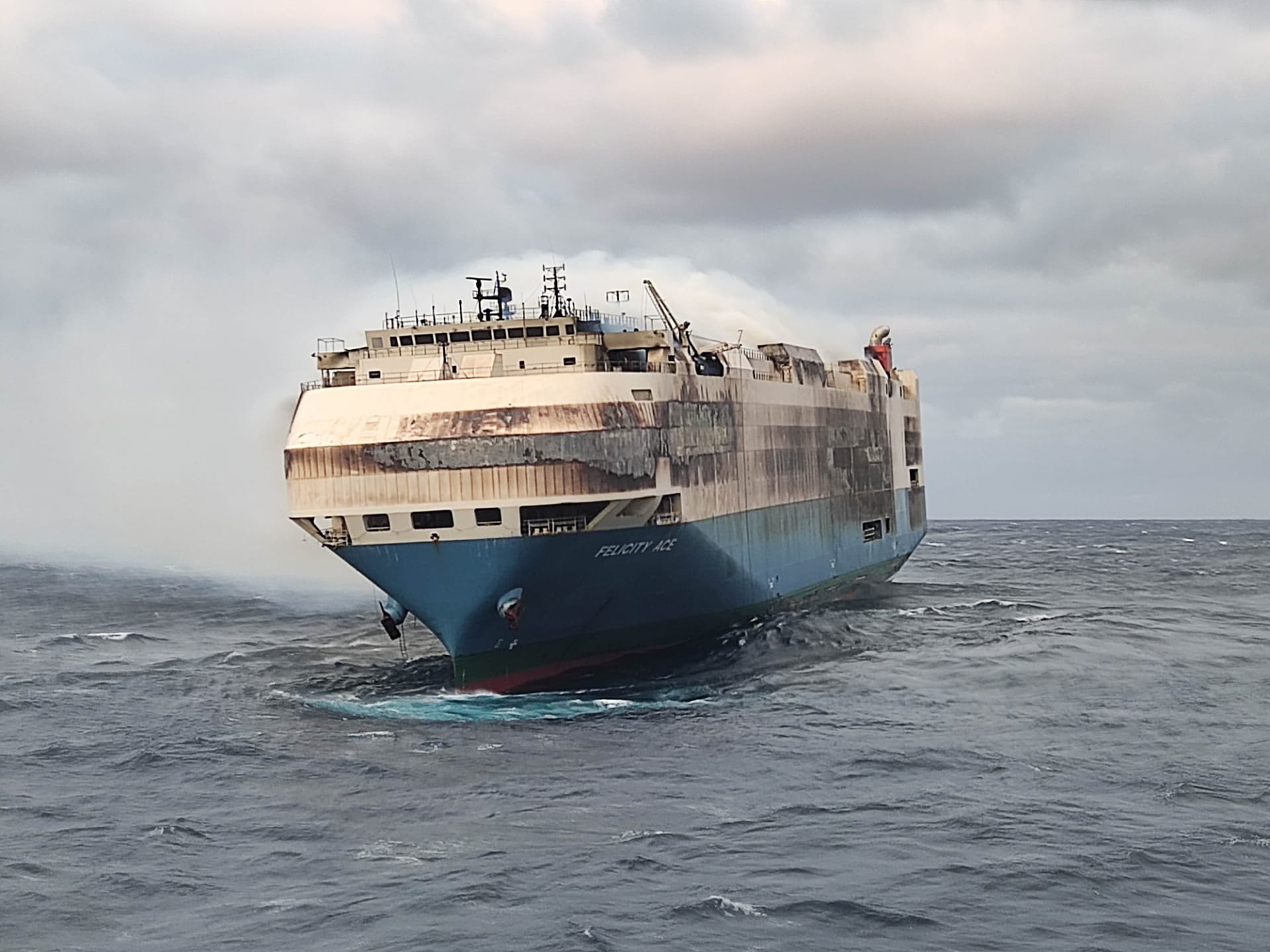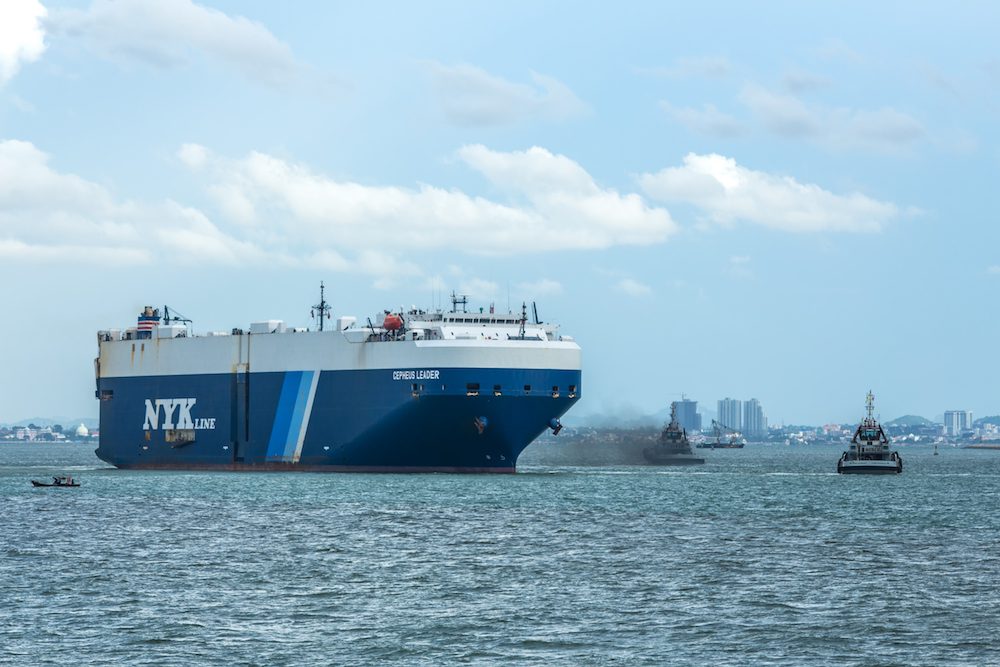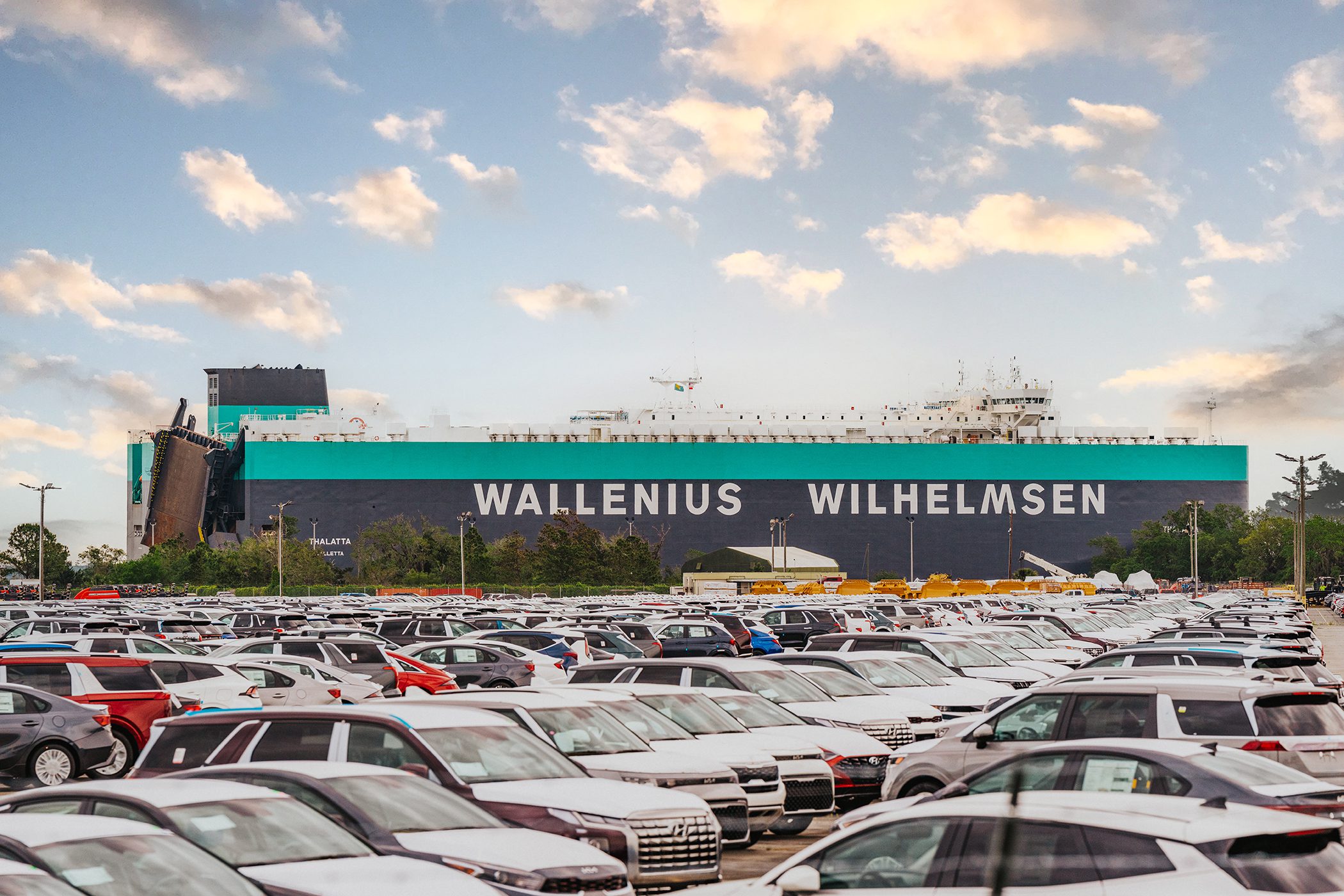Updated: April 21, 2023 (Originally published February 6, 2023)
The U.S. Coast Guard is warning the shipping industry of the extreme risk of loading electric vehicles (EV) with damaged Lithium-Ion onto commercial vessels.
Marine Safety Alert 01-23, issued last Friday, addresses the issue and provides recommendations to vessels, ports, shippers and regulators. The safety alert comes about four months after Hurricane Ian made landfall in South Florida as a Category 4 hurricane with maximum sustained winds at 150 mph. In the aftermath of the storm, first responders encountered numerous EV fires where investigations have determined were caused by exposure of the Lithium-Ion batteries to saltwater.
Saltwater exposure can severely harm Lithium-Ion batteries, leading to a chemical reaction that creates a high fire risk.
Records show there are over 7,000 EVs in Lee County, Florida with the potential for damage.
“Vessels, ports, and shippers should be aware of this extreme risk and avoid loading EVs with damaged Lithium-Ion onto commercial vessels,” the safety alert reads.
A previous safety alert (Safety Alert 01-22) issued last March highlights a recent incident where improperly discarded Lithium-Ion batteries caught fire in a container while en route to the Port of Virginia, where it was set to be loaded onto a ship. The container’s bill of lading listed the contents as “computer parts,” not lithium batteries.
The carriage of electric vehicles containing Lithium-Ion batteries presents new challenges to maritime transportation and firefighting.
In this latest safety alert, the Coast Guard strongly recommends that vessels, ports, shippers, and regulators:
- Conduct a comprehensive review of the vehicle shipping requirements found in both the Hazardous Materials Regulations (49 CFR) and the International Maritime Dangerous Goods (IMDG) Code. All lithium batteries are hazardous materials regulated by the Department of Transportation’s Pipeline and Hazardous Materials Safety Administration (PHMSA). As such, they are required to comply with the Lithium Battery Guide for Shippers.
- Conduct review of additional requirements for shipping damaged lithium ion batteries located in the PHMSA Safety Advisory Notice for the Disposal and Recycling of Lithium Batteries in Commercial Transportation. Due to the large size of EV batteries, the packaging requirements to comply with damaged shipment regulations are inadequate. As such, IMDG special provision 376 specifically requires approval from the competent authority (PHMSA or US Coast Guard) prior to shipment of damaged lithium batteries.
- Remain vigilant and ensure damaged lithium-ion vehicle batteries are not loaded onto vessels for shipment, placed within port facilities, or enclosed in containers.
Questions about Marine Safety Alert 01-23 can be sent to [email protected].
Editorial Standards · Corrections · About gCaptain

 Join The Club
Join The Club











